October 2016
The Custodian of the Two Holy Mosques King Salman bin Abdulaziz Al-Saud issued today a number of Royal Orders as follows:
Custodian of the Two Holy Mosques King Salman bin Abdulaziz chaired the weekly meeting of Council of Ministers this afternoon at Al-Yamamah Palace in Riyadh.
The Secretariat General of the Organization of Islamic Cooperation (OIC) Dr. Iyad bin Amin Madani announced has resigned today, for health reasons.
Saudi Arabia nominated Dr. Yousef bin Ahmad Al-Othaimeen as Secretary General. Dr. Al-Othaimeen is a former Saudi Minister of Social Affairs.
The Custodian of the Two Holy Mosques King Salman bin Abdulaziz received at Yamamah Palace in Riyadh today United States Secretary of Treasury Jack Lew. During the meeting, they emphasized the depth of the historical relations between the two countries, in addition to discussing economic and financial fields between the Kingdom and Gulf Cooperation Council (GCC) on one side and the United States on the other side.
(WASHINGTON, DC) – The Command of the Coalition Forces Supporting the Legitimate Government of Yemen announced today that they had intercepted a ballistic missile launched by Iranian-backed Houthi militias at 9pm local time. The missile was launched from Saada province toward the Makkah area. Saudi air defense was able to intercept the missile and destroy it about 65 km from Makkah without causing any damage on the ground. There were no injuries.
The coalition air forces launched a strike on the missile's launch site.
Deputy Crown Prince Mohammed bin Salman bin Abdulaziz, the Second Deputy Prime Minister and Minister of Defense, met this evening with United States Treasury Secretary Jack Lew, who is in the Kingdom to participate Ministers of Finance of the Gulf Cooperation Council and the United States.
The Foreign Ministry today expressed Saudi Arabia's condemnation and denunciation of the terrorist attack, which took place at a police academy in Quetta, Pakistan, resulting in death and wounding of scores of cadets and people.
In a statement, the Foreign Ministry renewed the Kingdom’s solidarity with Pakistan and offering condolence to the families of the victims and the Government and people of Pakistan, and wished the injured a quick recovery.
The Foreign Ministry today expressed the Kingdom's strong condemnation of the bombing which targeted a hotel in Kenya, causing a number of casualties. In a statement, the Foreign Ministry extended condolences to the families of the victims and to Kenya's government and people, wishing the injured a speedy recovery.
Crown Prince Mohammad bin Naif, Deputy Prime Minister and Minister of Interior, received in Riyadh today the Commander of the US Central Command Gen. Joseph Votel. During their meeting, they reviewed the prospects for greater cooperation between the two countries and the latest developments in the Middle East. The meeting was attended by Prince Abdulaziz bin Saud bin Naif, Advisor to the Minister of Defense, Chief of the General Intelligence Khalid bin Ali Al-Himaidan, and US Ambassador to the Kingdom Joseph Westphal .
(WASHINGTON, DC) – The Kingdom of Saudi Arabia today designated as supporters of terrorism two individuals and a business over their links to Hezbollah.
Those sanctioned are Lebanese nationals Muhammad Al-Mukhtar Falah Kallas and Hasan Jamal-al-Din; and the Iraq and Lebanon-based Global Cleaners (aka: GLBAL CLEN S.A.R.L.).
(WASHINGTON, DC) – The Joint Incidents Assessment Team (JIAT) in Yemen issued the following statement today based on the initial findings of its investigation:
The JIAT initiated an investigation into the Oct. 8, 2016, ceremony hall bombing immediately after it sadly occurred. The Coalition Forces Command have fully cooperated with this investigation.
Health requirements that must be met by Hajj pilgrims and Umrah performers (updates will be issued as needed):
The Ministry of Health has established a number of requirements that must be met by visitors to obtain an Entry Visa for Hajj and Umrah in the Kingdom of Saudi Arabia for Hajj season 1434 H. These health regulations include:
1 - Yellow Fever
Requirements:
Companion visas do not grant the applicant the right to work or reside in the Kingdom of Saudi Arabia.
Requirements:
Requirements:
Requirements:
Requirements:
Requirements:
Requirements:
Requirements:
- Original passport valid for no less than six (6) months with at least two (2) successive empty visa pages.
- Letter from the Department of State or the relevant embassy specifying the applicant’s name, title, position, purpose and length of trip, and number of entries requested.
- Detailed copy of in-bound and out-bound leg of the Saudi flight itinerary.
You May Also Apply For the Visa by:
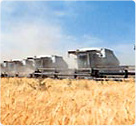
Saudi Arabia’s agricultural development over the last three decades has been astonishing. Large areas of desert have been turned into agricultural fields – a major accomplishment in a country that receives an average of about four inches of rain a year, one of the lowest rates in the world.
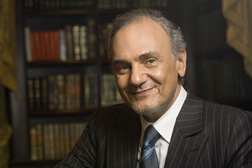
His Royal Highness Prince Turki Al-Faisal served as the Ambassador of the Kingdom of Saudi Arabia to the United States of America from September 13, 2005 until February 2, 2007.
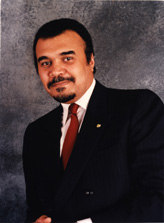
Prince Bandar served as the Ambassador of the Kingdom of Saudi Arabia to the United States of America from October 24, 1983 to September 8, 2005.
Prince Bandar was appointed Chief of General Intelligence by the Custodian of the Two Holy Mosques King Abdullah on July 19, 2012 and has served as Secretary-General of the National Security Council from October 16, 2005-January 29, 2015.
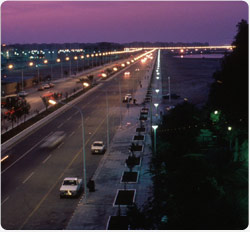
At the time of the establishment of the modern Kingdom of Saudi Arabia in 1932, the country lacked modern transportation facilities and ports, and had less than 30 miles of paved roads.
Saudi Arabia is divided into 13 provinces. Each province has a governor, a deputy governor, and a provincial council.
These councils deliberate on the needs of their province, work on the development budget, consider future development plans, and monitor ongoing projects.
The governor and deputy governor of each province serve as chairman and vice-chairman of their respective provincial council.
Since Saudi Arabia is an Islamic state, its judicial system is based on Islamic law (Shari’ah) for both criminal and civil cases. At the top of the legal system is the King, who acts as the final court of appeal and as a source of pardon.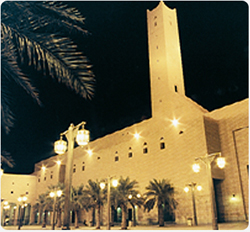
The Council of Ministers, also called the Cabinet, advises the King and facilitates the country’s development. It represents 22 different government ministries and is presided over each week by the King or his deputy.
The Cabinet is responsible for drafting and overseeing implementation of the internal, external, financial, economic, education and defense policies as well as the general affairs of the State.
The Basic System of Government identifies the nature of the state, its goals and responsibilities, as well as the relationship between the ruler and citizens. It defines the Kingdom of Saudi Arabia as an Arab and Islamic sovereign state; its religion is Islam and its constitution is the Holy Qur'an and the Sunnah.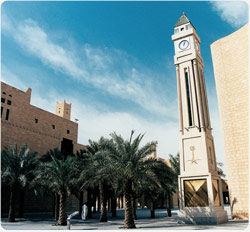
(WASHINGTON, DC) – The Kingdom of Saudi Arabia strongly condemns the attack on the U.S. Navy destroyer USS Mason by Houthi-Saleh militia in the Red Sea off the coast of Yemen.
The terrorist act jeopardizes international maritime security and is a systematized attack carried out by an Iran-backed militia targeting commercial marine at the Strait of Bab el-Mandab.
(WASHINGTON, DC) – The Saudi-led Coalition supporting the legitimate government in Yemen announced that it will immediately investigate the deadly bombing of the Great Hall in Sana'a during a funeral today.
In a statement, the coalition called the bombing “regrettable and painful” and expressed its deepest condolences and support to the families of the victims and all victims of violence in Yemen.
The coalition said its pilots have clear instructions not to target populated areas and to avoid civilians.
The Custodian of the Two Holy Mosques, King Fahd Bin Abdulaziz Al-Saud issued a Royal Decree embodying the Basic Law of Governance. The following is the text of the Decree.
In the name of God, the most compassionate, the most Merciful.
No: A/90
Dated 27th Sha'ban 1412 H (1 March 1992)
- Log in to ENJAZ link.
- Choose “individual”
- Choose “application for visa from Saudi missions abroad”
- Fill out the application form in block letters and upload your picture. Be sure to scan the same picture submitted with pdf form.
- Choose correct type of visa that matches your invitation and the appropriate Saudi mission, which where your invitation is being sent.
- After submitting your Enjaz application, make the visa payment. Be sure to use an accepted method of payment.
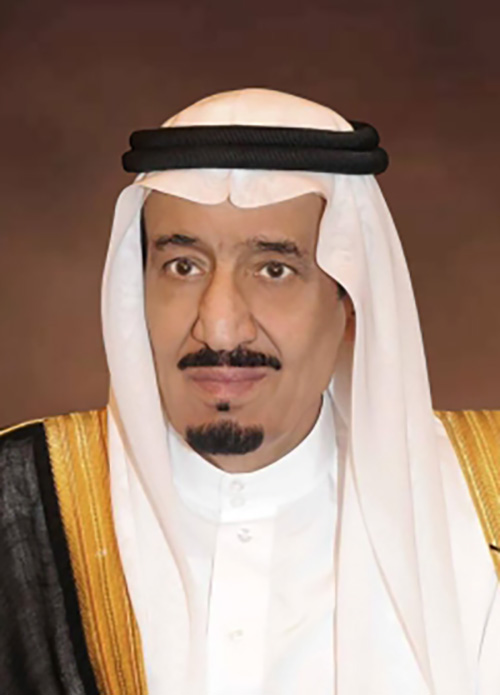 Custodian of the Two Holy Mosques King Salman bin Abdulaziz was proclaimed the seventh King of the Kingdom of Saudi Arabia on 3 Rabi’ al Thani 1436H (January 23, 2015), upon the death of Custodian of the Two Holy Mosques King Abdullah bin Abdulaziz.
Custodian of the Two Holy Mosques King Salman bin Abdulaziz was proclaimed the seventh King of the Kingdom of Saudi Arabia on 3 Rabi’ al Thani 1436H (January 23, 2015), upon the death of Custodian of the Two Holy Mosques King Abdullah bin Abdulaziz.
King Salman is also Prime Minister of the Council of Ministers.
- The photograph has to be a passport size photograph (2”x2”)
- Photograph has to be full-face view in which the applicant is facing the camera directly. Side or angled views are NOT accepted.
- White background, no exceptions.
- Please use tape, paper clip, or ONE staple only to stick the photograph to the application. DO NOT USE more the one staple, and DO NOT use glue.
- DO NOT place staple on applicant’s face, forehead, or clothing. It should be placed at either top or side of the photograph.
Article 1:
The Council of Ministers is a regulatory authority and the King is the Prime Minister.
Article 2:
The city of Riyadh is the seat of the Council of Ministers. Meetings may also be held in some other location in the Kingdom.
Article 3:
It is stipulated that every member of the Council of Ministers shall be:
Requirements:
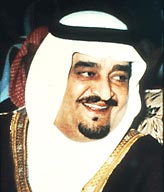 The Custodian of the Two Holy Mosques (may God protect him), on the occasion of the issuance of the Basic Law of Governance, the Law of Majlis Ash-Shura and the Law for the Provinces, gave the following speech to his fellow citizens of the Kingdom of Saudi Arabia:
The Custodian of the Two Holy Mosques (may God protect him), on the occasion of the issuance of the Basic Law of Governance, the Law of Majlis Ash-Shura and the Law for the Provinces, gave the following speech to his fellow citizens of the Kingdom of Saudi Arabia:
In the name of God, the Most Merciful, the Most Compassionate.
- Original passport valid for no less than six (6) months, with at least two (2) successive empty visa pages.
Article (5): Clearance of Pharmaceutical Products for Personal Use
The Custodian of the Two Holy Mosques, King Fahd Bin Abdulaziz Al-Saud, issued a Royal Decree embodying the Majlis Ash-Shura Law. The following is the text of the Decree:
In the Name of God, the Most Compassionate, the Most Merciful
No. A/91.
Dated 27/08/1412 H
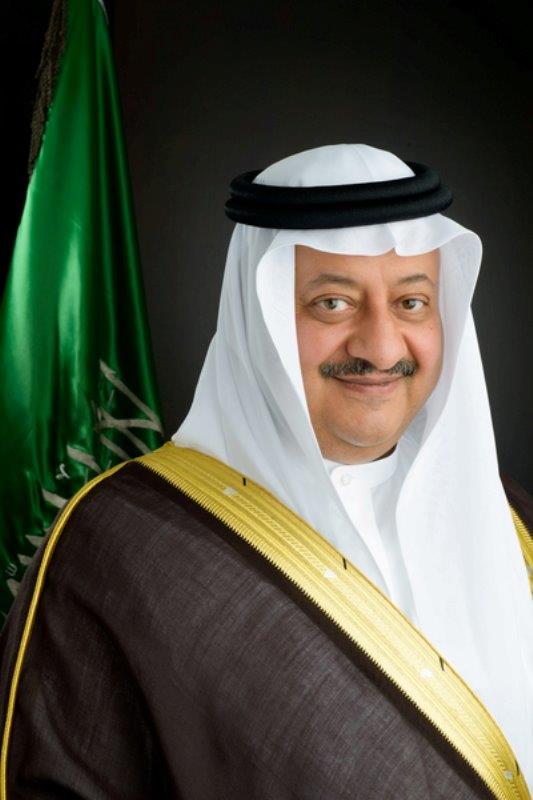
Ambassador Abdullah Al-Saud was born in 1951 in Saudi Arabia. He received his education in Saudi Arabia and studied engineering in the United Kingdom.
He started his professional life as an engineer with the newly established Royal Commission for Jubail and Yanbu, where he held technical and managerial positions and supervised key studies for the two industrial cities and for the industrial security and safety sector.
ENERGY MINISTER AFFIRMS COMMITMENT TO VISION 2030
“It is not unthinkable” that the price of oil could jump to $60 per barrel by the end of the year, said Saudi Minister of Energy, Industry, and Mineral Resources Khalid Al-Falih in recent remarks at the 23rd World Energy Congress in Istanbul. According to Al-Falih, the fluctuating price of oil has not affected the Kingdom’s preparations to implement the Vision 2030 plan, which will diversify the Saudi economy and invite investment across a broad array of sectors.
Crown Prince Brings Counterterrorism Message to United Nations
Crown Prince Mohammad bin Naif, Deputy Prime Minister and Minister of Interior of the Kingdom of Saudi Arabia, told the 71st session of the General Assembly of the United Nations on Sept. 21 that defeating terrorism is a priority for Saudi Arabia, which “has been among the primary victims of terrorism” going back many years.
